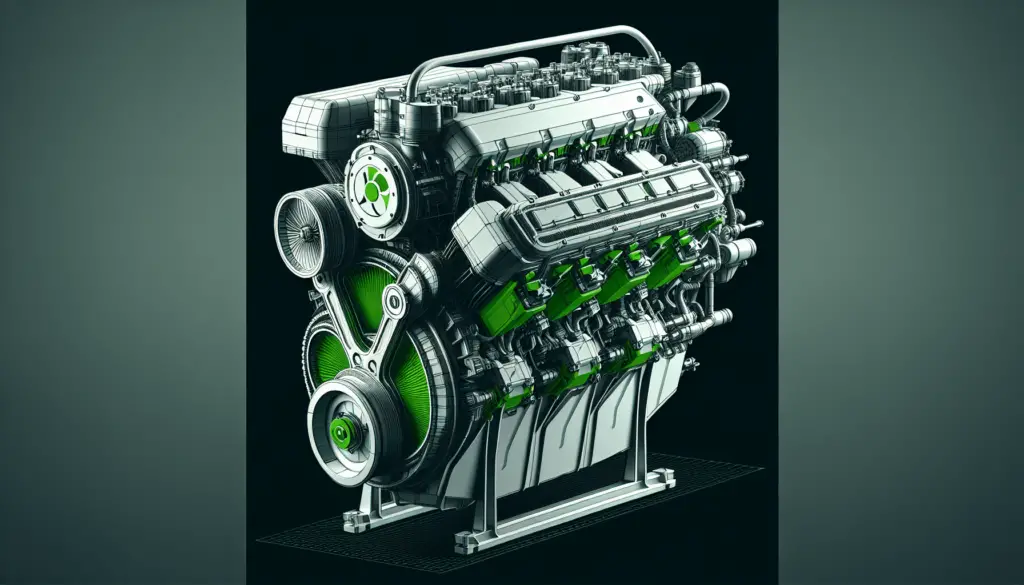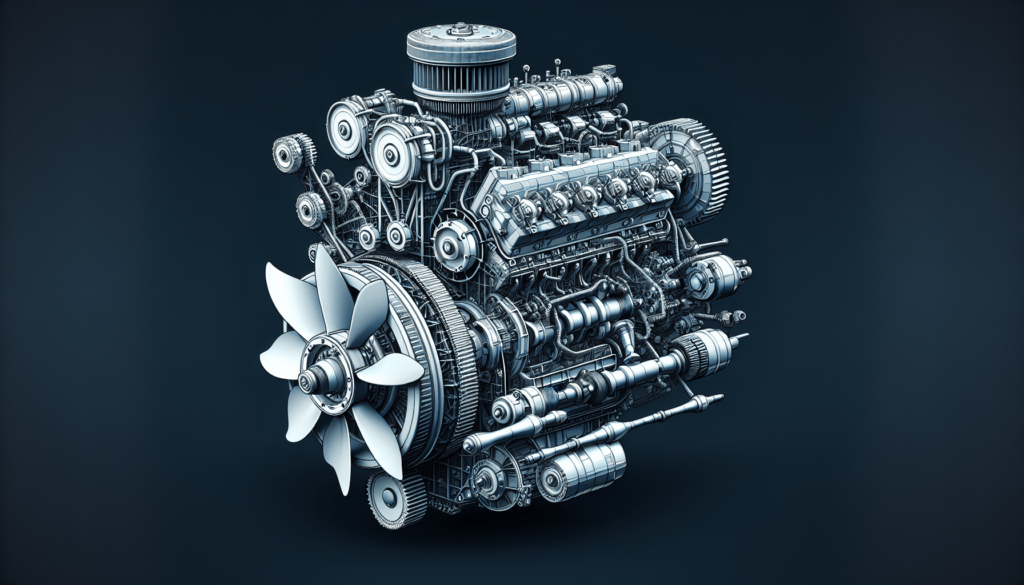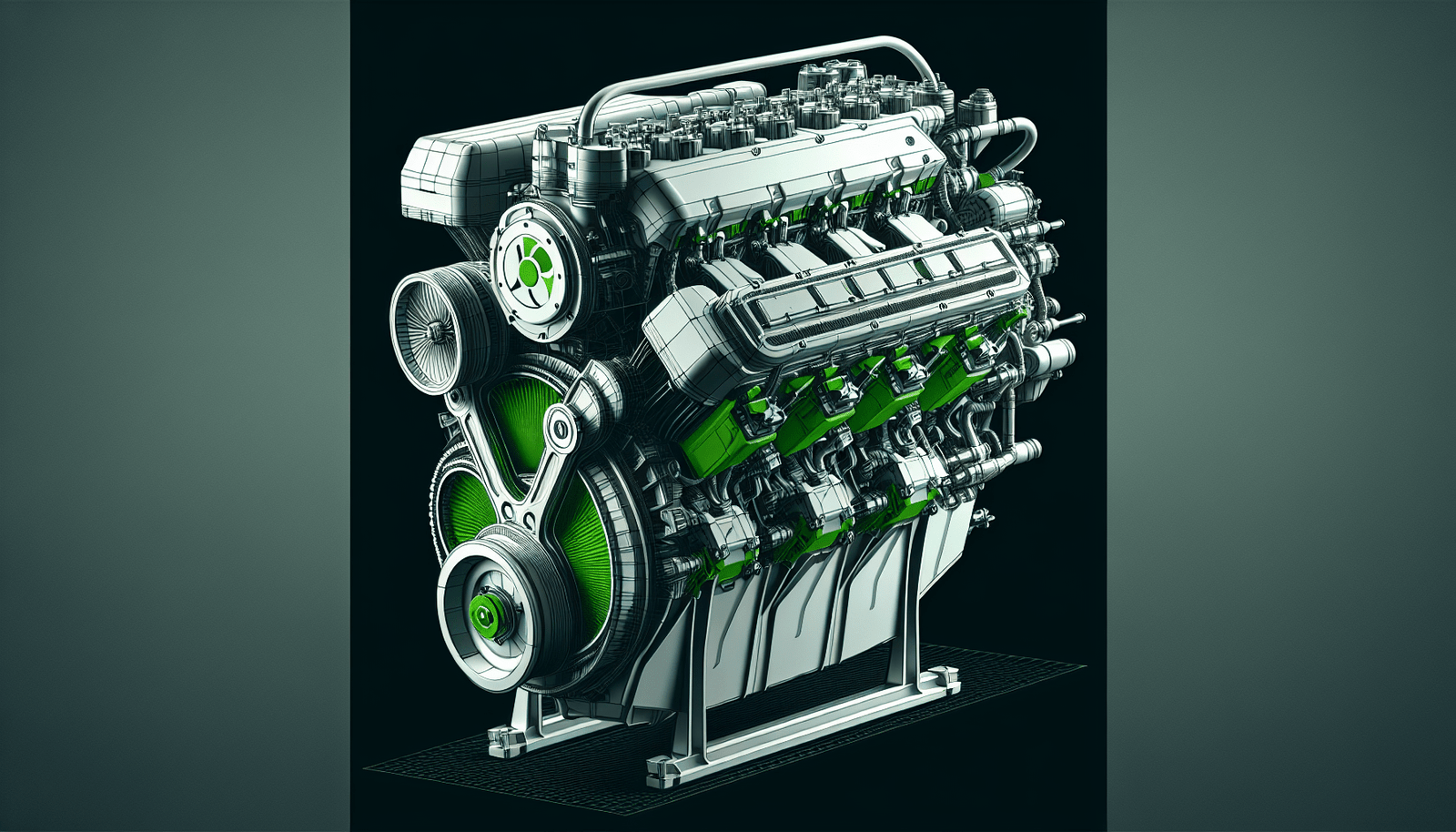Imagine yourself as an environmentally conscious boat owner, navigating the open waters and soaking in nature’s splendor. You might be considering how your recreational activities could wreak havoc on the places you adore. What if there’s an answer that allows you to indulge in your water-bound wanderlust without leaving ripples of pollution in your wake? This article is about bridging your love for open waters with your commitment to environmental conservation through eco-friendly boat engine upgrades and modifications. Buckle up as you’re about to gain insights into how to sail cleaner without sacrificing performance and longevity.

Understanding the Impact of Boats on the Environment
The role of boats as significant contributors to negative environmental impact can’t be underestimated. However, it’s important that you understand how exactly this happens to appreciate the urgency for adopting eco-friendly alternatives.
Greenhouse gas emissions from boats
Just like cars, boats emit carbon dioxide (CO2) into the atmosphere as a byproduct of burning fuel. This CO2 is a potent greenhouse gas that contributes to global warming. In addition, boats may also produce nitrogen oxides and sulfur oxides, which can cause acid rain and smog.
Water and noise pollution from boats
Boats contribute to water pollution through the discharge of oil, fuel, sewage, litter, and other waste. Noise pollution from boats, particularly motorboats, can have harmful effects on marine life. The noise can disrupt the communication between marine species, as well as their behavior and migration patterns.
Depletion of marine life due to boat activities
Boat activities such as fishing and dredging can directly lead to the depletion of marine life. The destruction of aquatic habitats by boat propellers or anchors may also have a long-term impact on the biodiversity of marine ecosystems.
The Need for Eco-Friendly Boat Engines
Understanding these environmental impacts leads us to the urgency of switching to eco-friendly boat engines. Here’s why this shift is very important:
Increasing environmental regulations
Governments and international organizations are issuing stricter regulations to curb the environmental damage caused by boats. Eco-friendly boat engines are designed to comply with these regulations, saving you potential legal complications and fines.
Public consciousness and demand for eco-friendly options
There’s growing public awareness about the environmental impact of boating. Many boaters are showing interest in greener alternatives, and adopting eco-friendly engines may enhance your reputation and competitive edge.
Long-term economic benefits of green engines
Despite initial investment costs, eco-friendly boat engines can provide economic benefits in the long run. They’re usually more fuel-efficient, reducing running costs. Plus, governments may provide subsidies and incentives for eco-friendly boating.
Choosing an Eco-Friendly Boat Engine
Switching to an eco-friendly boat engine may seem daunting, but with the right information, it’s certainly achievable.
Types of eco-friendly boat engines
The most common types of eco-friendly boat engines are electric engines, hybrid engines, and engines that run on biofuel or other alternative fuels. Each comes with its own set of features and specifications that favour varying boating conditions and requirements.
Pros and cons of different eco-friendly engines
While all eco-friendly engines help reduce environmental impact, each type has unique pros and cons. For instance, electric engines are silent and emission-free but may have limited range. Hybrid engines combine the benefits of fuel and electric power but may be more complex to maintain. Understanding these pros and cons is crucial for making an informed choice.
Challenges in finding the right eco-friendly engine
Transitioning to eco-friendly engines bring challenges. You must consider factors such as the type of boat, regular boating conditions, and availability of supporting infrastructure like charging stations for electric boats. Weighing these factors accordingly will help you pick the best eco-friendly engine for you.
Technology behind Eco-Friendly Boat Engines
The advancements in technology are playing a significant role in eco-friendly boat engines development.
Use of renewable energy sources
Eco-friendly boat engines harness renewable energy sources. Electric engines run on electricity, typically generated from renewable resources, and hybrid engines combine this with conventional fuel. Some engines can even run on biofuels made from renewable biological resources.
Emission control technologies in engines
Technologies like Exhaust Gas Recirculation (EGR) and Selective Catalytic Reduction (SCR) are being used in boat engines to reduce harmful emissions. They help limit the release of nitrogen oxides and particulate matter, making the engine more environmentally friendly.
Technology used to reduce noise and water pollution
Silent electric engines and propeller designs that minimize water disturbance play a significant role in reducing noise and water pollution. Additionally, waste management systems are being included in boats to manage waste and prevent water pollution.

Engine Upgrades for Emission Reduction
You don’t need to replace your boat engine necessarily to make it more eco-friendly. Various engine upgrades can help reduce emissions.
Introduction to engine upgrades
Engine upgrades involve enhancements or additions to your existing engine to lower its impact on the environment. These can range from retrofitting emission control technologies to making modifications that increase fuel efficiency.
Types of emission reduction upgrades
Emission reduction upgrades include technologies like EGR and SCR, which control harmful emissions. Installing high-quality fuel injectors and ensuring proper engine tuning can also result in cleaner burning of fuel and lower emissions.
Process and cost of emission reduction upgrades
The process of upgrading involves assessing your current engine’s performance, selecting suitable upgrades, and having them installed by a professional. Costs will vary depending on the type of upgrade, but most boaters find the investment worth it due to the long-term benefits and savings.
Converting to Hybrid Boat Engines
A hybrid engine, combining traditional and electric power, is one popular eco-friendly option.
Benefits of hybrid engines
Hybrid engines offer the best of both worlds – they provide the power and range of fuel engines while letting you enjoy the benefits of the quiet, clean operation of electric engines. They can switch between power sources, making them versatile for different boating situations.
Process of converting to a hybrid engine
Converting to a hybrid engine involves replacing your existing engine with a hybrid one or retrofitting hybrid technology to your boat. Professional assistance is recommended to ensure a correct and safe installation.
Maintenance and costs associated with hybrid engines
While hybrid engines may be more expensive initially and require periodic maintenance, the long-term savings and benefits can be substantial.
Electric Boat Engines and Associated Modifications
Electric boat engines represent the forefront of eco-friendly boating technology.
Understanding electric boat engines
Electric boat engines run solely on electricity, stored in batteries on the boat. They produce zero emissions during operation and are incredibly silent, offering a whole new boating experience.
Battery capacity and charging infrastructure for electric boats
One key factor with electric boat engines is the limited range due to battery capacity. However, advancements are being made in battery technology, and charging infrastructure is becoming more widespread, making electric boating more viable.
Costs and benefits of electric boat engines
While electric engines may require a higher upfront investment and regular battery maintenance, their benefits are compelling. They offer lower running costs, silence, and zero emissions, making them a sound investment for many boaters.
Using Biofuels and Other Alternative Fuels in Boats
Alternative fuels like biofuels offer another greener option for boaters.
Types of biofuels for boats
Biofuels are produced from organic materials and can be used in most boat engines with little to no modifications. Biodiesel and ethanol blends are the most commonly used biofuels in boating.
Installation and maintenance of biofuel systems
Using biofuels may involve minor adjustments to your engine or fuel system. While biofuels may require more frequent maintenance due to their properties, using them contributes significantly to reducing greenhouse gas emissions.
Benefits and challenges of using biofuels
Biological nature of biofuels makes them renewable and less damaging to the environment. Challenges include slightly lower energy content compared to conventional fuel and the need for more diligent maintenance of the fuel system.
Future of Eco-Friendly Boat Engines and Technologies
The future is promising for eco-friendly boat engines and technologies given the growing concern about the environmental impact of boating.
Emerging eco-friendly technologies for boats
Advancements in battery technology and renewable energy are reshaping the boating industry. We’re also seeing interesting developments like energy recovery systems and autonomous boats powered by renewable energy.
Projected trends in the boat engine market
The boat engine market is likely to see a significant shift towards more eco-friendly options. Electric and hybrid engines are expected to increase in popularity, and the use of biofuels is also projected to rise.
Role of government policies and regulations on future technologies
Government policies and regulations will play a crucial role in shaping the future of eco-friendly boating. Regulations encouraging or mandating green boating practices can speed up the adoption of these technologies.
Case Studies of Eco-Friendly Boat Engine Implementations
Real-world examples offer valuable insights into the practicalities of eco-friendly boat engines.
Success stories of eco-friendly boat engine adoption
Several boaters and companies have successfully transitioned to eco-friendly boat engines. These success stories demonstrate the viability of green boating and its numerous benefits.
Challenges faced and solutions implemented in these cases
Transitioning to eco-friendly engines isn’t without challenges, including high initial costs and limited infrastructure. However, the boating community is coming up with innovative solutions to overcome these hurdles.
Impact and reception of eco-friendly engines in the boating community
The boating community’s reception towards eco-friendly engines is generally positive. A growing number of boaters are recognizing the benefits both for the environment and themselves, leading to an increased adoption of eco-friendly boating practices.

